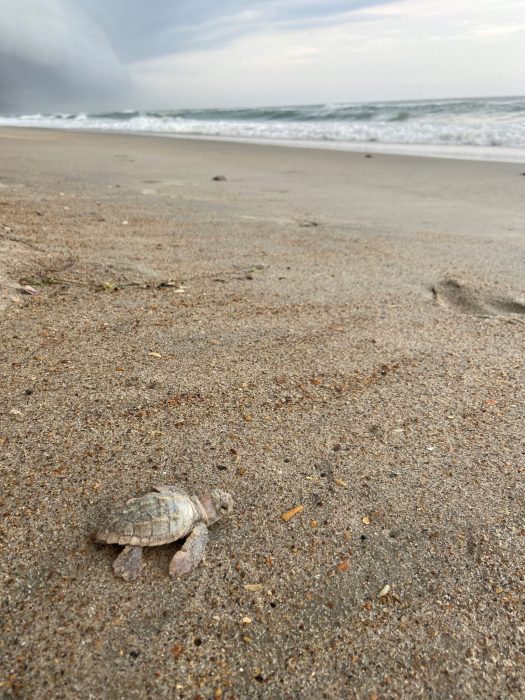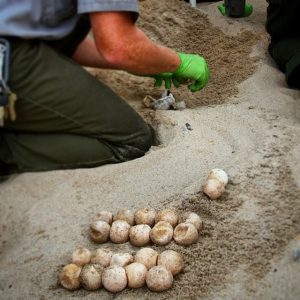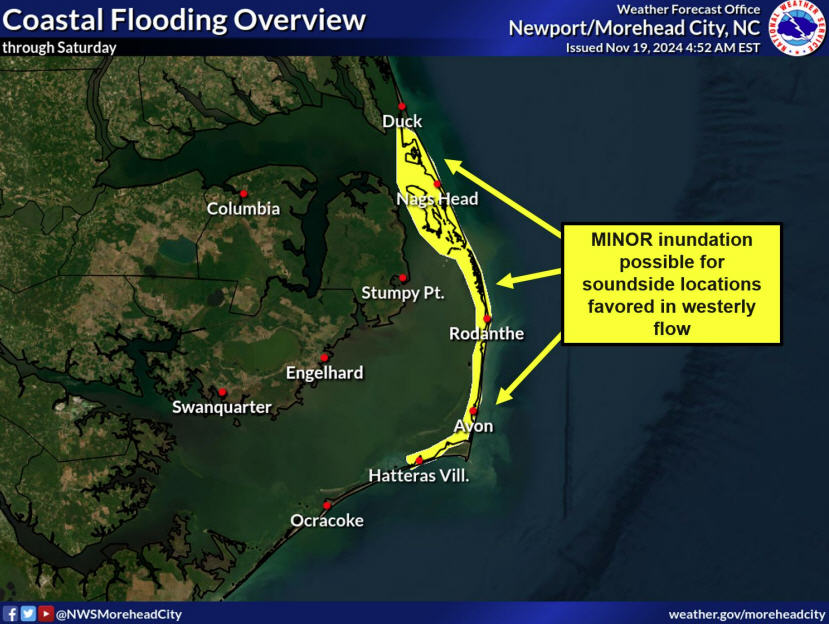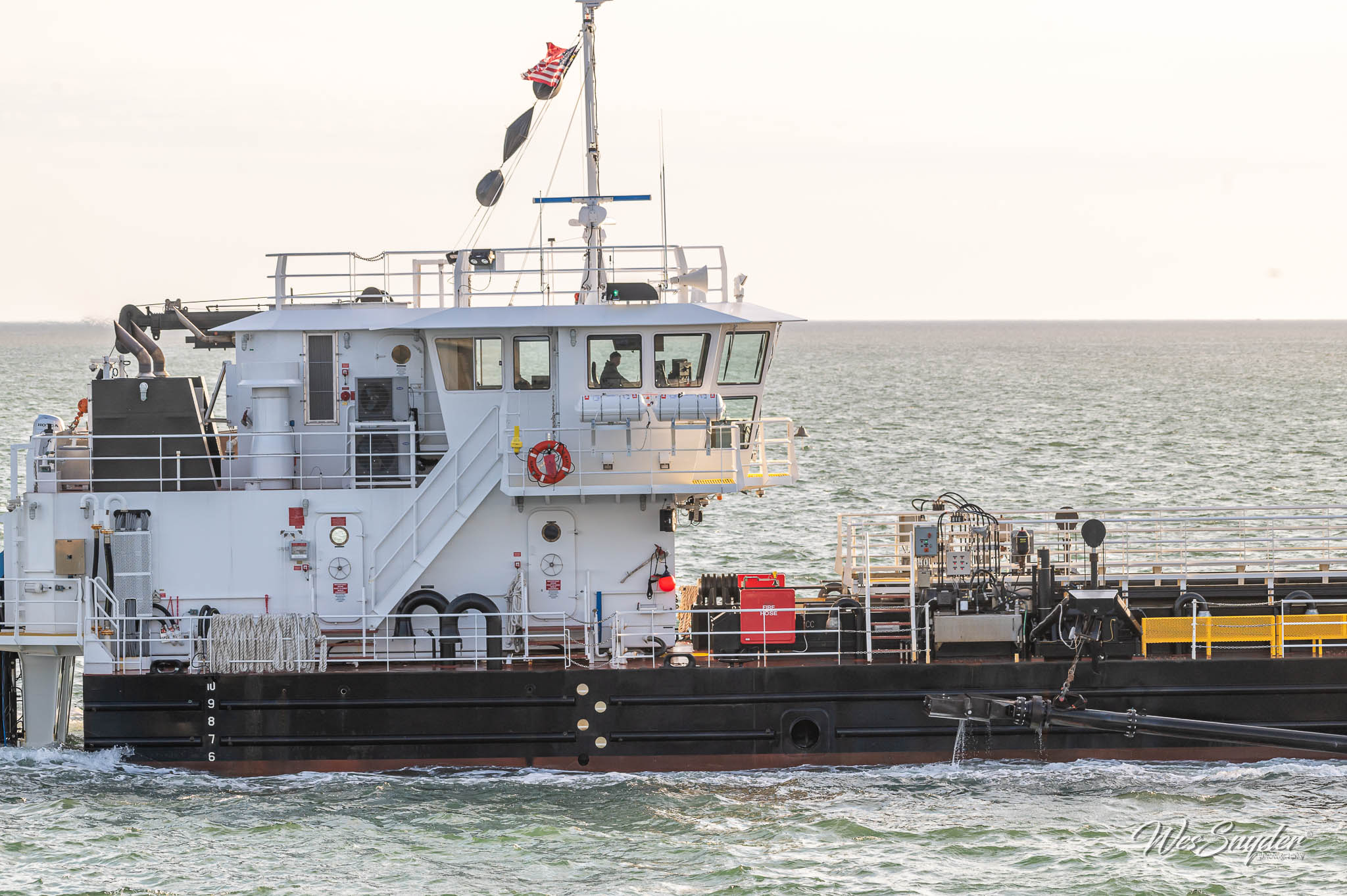National Seashore biologists find rare leucistic loggerhead sea turtle during nest excavation

On July 23, the first sea turtle nest of the 2022 nesting season hatched along the Cape Hatteras National Seashore (CHNS). Since then, several more nests have hatched, and park biologists have started nest excavations.
During a recent excavation on July 27, a live, leucistic loggerhead sea turtle was found at the bottom of the nest chamber. It was released that evening, and crawled its way into the Atlantic Ocean.
“This genetic deviation is rare since we typically only see a few per year,” stated CHNS in an online update.
At first glance, a leucistic sea turtle may look albino since it lacks the typical pigment and coloration of a loggerhead sea turtle. Albinism occurs when there’s an absence of melanin, which makes the animal appear white with eyes pink in color. Leucism is similar, but the sea turtle still has some pigmentation, and its eyes are often normal in coloration, (as shown in the image above).

The Outer Banks serves as seasonal breeding grounds for endangered sea turtles, and the National Seashore has had several record-breaking years in the past decade when it comes to the annual number of recorded sea turtle nests.
Sea turtle nests laid by loggerheads, green turtles, Kemp’s Ridley, and leatherbacks have been monitored at CHNS since the 1970s. In 2019, there was a total of 473 sea turtle nests recorded within the National Seashore, which was the highest number of nests since data collection began.
While 2019 was a record-breaking year for sea turtle nesting activity, 2020 and 2021 were solid years for sea turtles as well, with a total of 228 nests recorded in 2020, and a total of 315 nests recorded in 2021.
So far in 2022, there have been 318 sea turtle nests, which includes 308 loggerheads, 8 green sea turtles, 1 leatherback, and 1 Kemp’s Ridley sea turtle, according to http://www.seaturtle.org/.
Due to the recent highly active nesting seasons, visitors are advised to be aware of sea turtle nesting activity or hatchlings while visiting the local beaches on Hatteras and Ocracoke Islands. If you see turtle tracks, nesting activity, or hatchlings, please notify park biologists by calling the stranding hotline at 252-216-6892.







